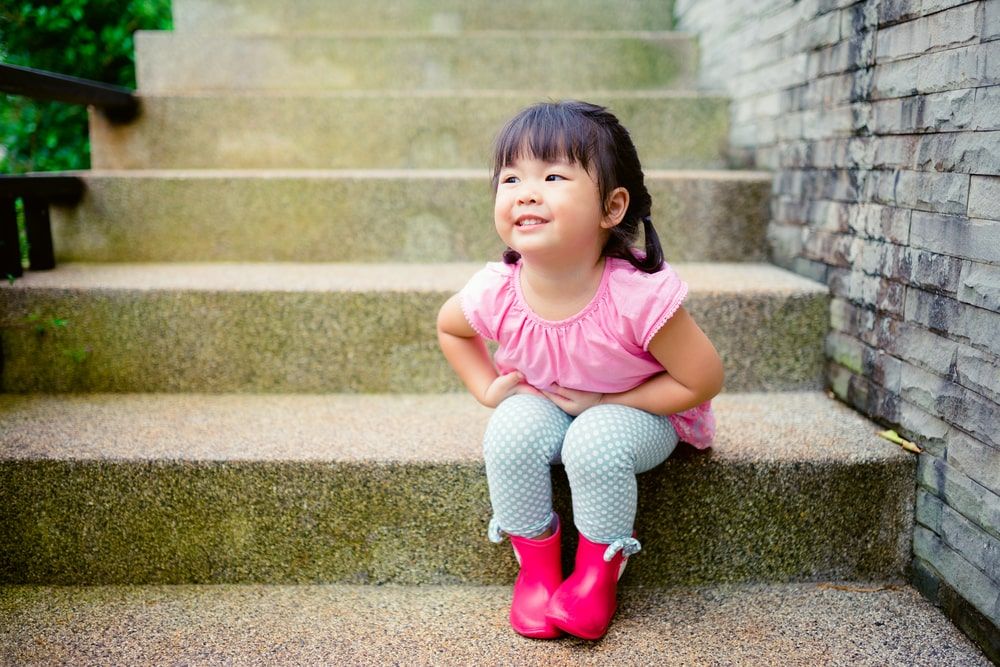Navigating Parental Expectations and Childhood Anxiety
Growing up in an Asian household is akin to embarking on a challenging tightrope walk, where you must balance the weight of your parents’ towering expectations with the preservation of your mental well-being. It’s a journey fraught with unique pressures and challenges, where the pursuit of success and academic excellence often overshadows the equally important pursuit of personal happiness. In this blog, we’ll not only recognize the delicate balancing act you undertake but also delve deep into the fascinating world of parenting styles and their profound impact on childhood anxiety.
The Asian Household Tightrope: Balancing Act Extraordinaire:
As an anxious overachiever, you’re well-acquainted with the tension that arises when you strive to meet your parents’ aspirations while safeguarding your mental health. The cultural backdrop often places a premium on academic achievements, professional success, and familial honor. These expectations, though well-intentioned, can create a tightrope of emotional and psychological challenges. It’s a realm where every step forward is met with the looming fear of stumbling, and every choice bears the weight of family reputation.
Understanding Asian Parenting Styles
Authoritarian Parenting:
In the traditional realm of Asian family dynamics, authoritarian parenting reigns supreme, casting a formidable shadow over a child’s upbringing. Within this approach, parents wield the power of unyielding authority, setting up a system brimming with stern and unwavering rules. These rules, like a strict code of conduct, predominantly revolve around academic excellence, impeccable behavior, and rigid discipline. Compliance isn’t just encouraged; it’s expected with military precision. The ultimate objective of this approach? To propel children toward the zenith of achievement.
The intention behind authoritarian parenting, while rooted in a genuine desire for success, can inadvertently spawn an atmosphere fraught with heightened stress and unrelenting anxiety. Children reared under the banner of authoritarian parenting find themselves treading the tumultuous waters of unceasing pressure, navigating the exacting standards set by their parents like tightrope walkers. The fear of disappointing their parents, a looming specter, casts a long, dark shadow of inadequacy, nurturing a relentless anxiety that can linger well into adulthood. The pursuit of these lofty expectations, like a relentless tempest, can at times obscure a child’s unique individuality and emotional well-being, leaving behind indelible imprints on their self-esteem. Balancing their own dreams with their parents’ unwavering demands becomes an arduous feat, one that often fuels anxiety and perpetually looming self-doubt.
Tiger Parenting:
Tiger parenting, catapulted to global attention courtesy of Amy Chua’s fiercely debated book, “Battle Hymn of the Tiger Mother,” takes the characteristics of authoritarian parenting to astronomical heights. In this style, parents not only emphasize but ardently demand academic excellence and a slew of extracurricular triumphs. The pursuit of perfection becomes the very fabric of existence, a life-defining mission driven by relentless dedication and unwavering perseverance.
While it is undeniable that some children may achieve stratospheric success under the hawk-like gaze of tiger parents, the extreme expectations and ceaseless pushing extract a substantial toll on their mental well-being. The unrelenting pressure to excel extends beyond mere stress; it leads to a profound sense of persistent anxiety. The pursuit of perfection, often driven by the harrowing fear of failure, casts an enduring, almost all-encompassing shadow over the child’s emotional and psychological well-being. This looming presence can potentially brand lasting emotional scars, impacting self-esteem, and the ability to navigate the turbulent seas of life with resolute determination.
Balanced Parenting:
In a striking contrast to the more authoritarian and demanding styles, balanced parenting champions a harmonious equilibrium between nurturing high expectations and providing essential emotional support. This approach celebrates the paramount importance of allowing children to unfurl their unique interests and passions, all the while fueling their quest to reach the pinnacle of their potential. Flexibility and a profound appreciation of a child’s individuality lie at the very core of this style.
Balanced parenting nurtures an environment where children can boldly embark on the expedition of self-discovery without feeling smothered by the relentless pressure of unattainable perfection. Unlike the preceding two styles, balanced parenting places a premium on the emotional and psychological well-being of the child. It doesn’t merely chase success but values the journey, allowing children to pursue their ambitions with a profound sense of self-assuredness and boundless confidence, all while embracing the dazzling mosaic of their personalities and talents. This style ultimately seeks to harmonize achievement with well-being, sculpting individuals who can thrive both in terms of soaring success and boundless happiness.
The Impact on Childhood Anxiety:
The parenting styles prevalent in Asian households are like the shaping forces that mold a child’s early years. These styles, ranging from authoritarian and tiger parenting to balanced parenting, wield significant influence over a child’s mental well-being, potentially leading to the development of childhood anxiety.
Imagine growing up in an environment where rules are rigid, and expectations are towering, as in authoritarian parenting. The pressure to conform to these stringent guidelines can be stifling. Children may find themselves walking a tightrope, constantly worrying about slipping up or falling short of their parents’ high standards. The fear of not meeting these expectations can become an omnipresent shadow, hovering over their every move like an unrelenting storm cloud. This constant stress can sow the seeds of anxiety, making children feel inadequate and overwhelmed.
Tiger parenting, often taken to even greater extremes, amplifies the intensity of these pressures. With a relentless emphasis on academic excellence and a pursuit of perfection, children may be on a never-ending quest to meet the astronomical benchmarks set by their parents. The fear of failure is a looming specter, driving them to push themselves beyond their limits. The result? A profound sense of anxiety that goes beyond the ordinary worries of childhood.
However, it’s important to realize that these parenting styles, while significant, do not define the entirety of one’s childhood or future. There’s room for adaptation and growth. Childhood anxiety, though a formidable adversary, need not be the prevailing narrative. It’s crucial to recognize that the impact of these parenting styles is not etched in stone, and there are ways to mitigate their effects.
Children are remarkably resilient and adaptive. They can find strength in understanding the dynamics at play, developing coping mechanisms, and seeking support from trusted sources. By fostering open lines of communication with parents, children can convey their feelings and concerns, helping parents understand the weight of the expectations they carry. This dialogue can be a transformative step toward mutual understanding and a more balanced approach to parenting.
Additionally, it’s important for children to set realistic goals that align with their own interests and capabilities. Embracing a sense of individuality and accepting that perfection is not the only path to success can be liberating. Celebrating small victories, no matter how modest they may seem, can be empowering, reinforcing self-esteem and reducing the grip of anxiety.
While the impact of parenting styles on childhood anxiety is significant, it’s essential to remember that there is room for adjustment, growth, and healing. Childhood anxiety is just one chapter in a much longer journey, and by recognizing its origins and seeking support, children can pave the way for a brighter, more balanced future.
Navigating the Tightrope:
In the intricate dance of growing up within an Asian household, the high expectations placed upon you often feel like a precarious tightrope, where balancing the weight of ambition and the preservation of your mental well-being can be an exhilarating yet daunting challenge. However, beneath this high-wire act lies a toolkit of strategies that can guide you in finding harmony between your aspirations and your mental health.
1. Communication: The Foundation of Understanding
Imagine communication as the strong wire that supports your journey on this tightrope. Open, honest conversations with your parents are the cornerstone of finding common ground. While it may seem intimidating to address the subject, it’s crucial. By sharing your feelings and concerns, you humanize your experiences, making it easier for your parents to relate to your struggles. This dialogue can be transformative, paving the way for a more empathetic and supportive relationship. It’s a step toward understanding that you are not merely a vessel for their dreams but an individual with your own unique path.
2. Set Realistic Goals: Embrace Imperfection
Walking the tightrope becomes more manageable when you set goals that are not just demanding but also attainable, aligned with your interests and strengths. Understand that perfection is a mirage, an elusive ideal, and that it’s perfectly okay not to be perfect. Accept your limitations and work within them. By embracing realistic goals, you alleviate some of the unnecessary stress and anxiety that often accompanies the pursuit of unattainable standards. You realize that your worth is not solely defined by your achievements, but also by the growth and progress you make.
3. Self-Care: Finding Serenity Amidst the Tension
To maintain balance on this tightrope, prioritize self-care and stress management techniques. Embrace activities that help you relax and unwind, whether it’s through the gentle practice of yoga, the calming influence of meditation, the therapeutic release of art, or simply the solace of a peaceful walk. These moments of respite offer a sanctuary from the relentless pressures of daily life, allowing you to recharge, rejuvenate your mind, and maintain your equilibrium.
4. Seek Support: You Are Not Alone
One of the greatest misconceptions is that you must navigate this tightrope in solitude. Remember that you are not alone in your journey. Seek support from trusted individuals such as teachers, counselors, or friends if you find yourself struggling. These support systems are not just a safety net but a guiding light. Teachers and counselors can offer professional guidance and strategies for managing both academic and personal challenges. Friends can be a comforting presence, a shoulder to lean on, and a reminder that solidarity in struggle is a powerful force for resilience.
5. Celebrate Small Wins: The Building Blocks of Confidence
Finally, as you traverse the tightrope, don’t underestimate the significance of small victories. Even the seemingly minor accomplishments deserve recognition. Acknowledging and celebrating your achievements, no matter how modest they may seem, can serve as a powerful booster for your self-esteem. Over time, this practice instills a profound sense of motivation and self-assurance, building your resilience and determination.
Feeling the tug of parenting methods and their impact on childhood worries within Asian homes?
Unlock solutions with mental health support! Juggling parental hopes while tending to your child’s mental wellness is vital for fostering a healthier family atmosphere. At Uncover Mental Health Counseling, we grasp the complexities of these dilemmas and stand ready to assist you on this journey. Here’s how you can begin:
- Set Up a Free Consultation: Kick off by arranging a consultation with Uncover Mental Health Counseling to delve into the interplay between parenting styles and childhood anxiety within your Asian household.
- Connect with NYC Anxiety Therapists: Our therapy team consists of skilled anxiety specialists in New York City who specialize in navigating cultural intricacies and fostering positive parent-child connections.
- Implement Mental Health Tactics: Let’s navigate the blend of parenting approaches and childhood anxiety hand in hand, paving the way for a more balanced and nurturing family environment. Collaborate with our mental health professionals to craft customized strategies aimed at finding equilibrium between parental expectations and your child’s emotional wellness.





































